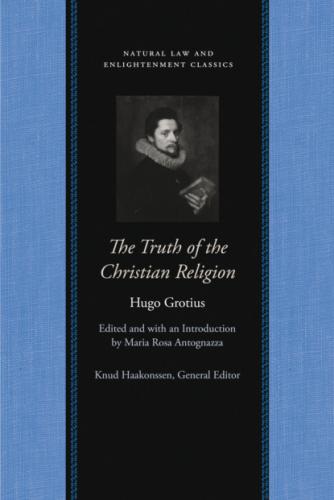The Contents of Mr. Le Clerc’s two Books.
| BOOK I. | |
| I. | We must enquire amongst what Christians the true Doctrine of Christ flourisheth most at this Time, <287> |
| [print edition page 26] | |
| II. | We are to join ourselves with those who are most worthy the Name of Christians, <291> |
| III. | They are most worthy the Name of Christians, who in the purest Manner of all, profess the Doctrine, the Truth of which hath been proved by Grotius, <294> |
| IV. | Concerning the Agreement and Disagreement of Christians, <296> |
| V. | Whence every one ought to learn the Knowledge of the Christian Religion, <300> |
| VI. | Nothing else ought to be imposed upon Christians, but what they can gather from the New Testament, <302> |
| VII. | The Providence of God in preserving the Christian Doctrine, is very wonderful, <304> |
| VIII. | An Answer to that Question, why God permits Differences and Errors to arise amongst Christians, <307> |
| IX. | They profess and teach the Christian Doctrine in the purest manner of all, who propose those Things only as necessary to be believed, practised, or hoped for, which Christians are agreed in. <310> |
| X. | All prudent Persons ought to partake of the Sacrament, with those who require nothing else of Christians, but what every one finds in the Books of the New Testament, <312> |
| XI. | Concerning Church Government, <315> |
| XII. | The antient Church Government was highly esteemed by Grotius, without condemning others, <317> |
| XIII. | An Exhortation to all Christians who differ from each other, not to require of one another any Points of Doctrine, but such as every one finds in the New Testament, and have always been believed, <318> |
| [print edition page 27] | |
| BOOK II. | |
| I. | That we ought to have a Love for Truth, in all things, but more especially in such as are of great Moment, <322> |
| II. | Nothing can be of greater Moment than Religion; and therefore we ought to use our utmost Endeavours to come at the true Knowledge of it, <324> |
| III. | That an Indifference in Religion, is in its own Nature unlawful, forbidden by the Laws of God, and condemned by all Sects of Christians, <326> |
| IV. | We ought not hastily to condemn those who differ from us, as if they were guilty of such a Crime, or such an unlawful Worship, as is inconsistent with eternal Life; so that none who admit such Persons, should be capable of the Mercy of God; nor yet on the other Hand, is it lawful for us to profess that we believe, what we do not really believe, or to do what at the same time we condemn. <332> |
| Sect. V. | A Man that commits a Sin by Mistake, may be accepted of God, but a Hypocrite cannot, <336> |
| Testimonies concerning Hugo Grotius’s Affection for the Church of England, <338> | |
[print edition page 28]
[print edition page 29]
To the Honourable
Hieronymus Bignonius,
